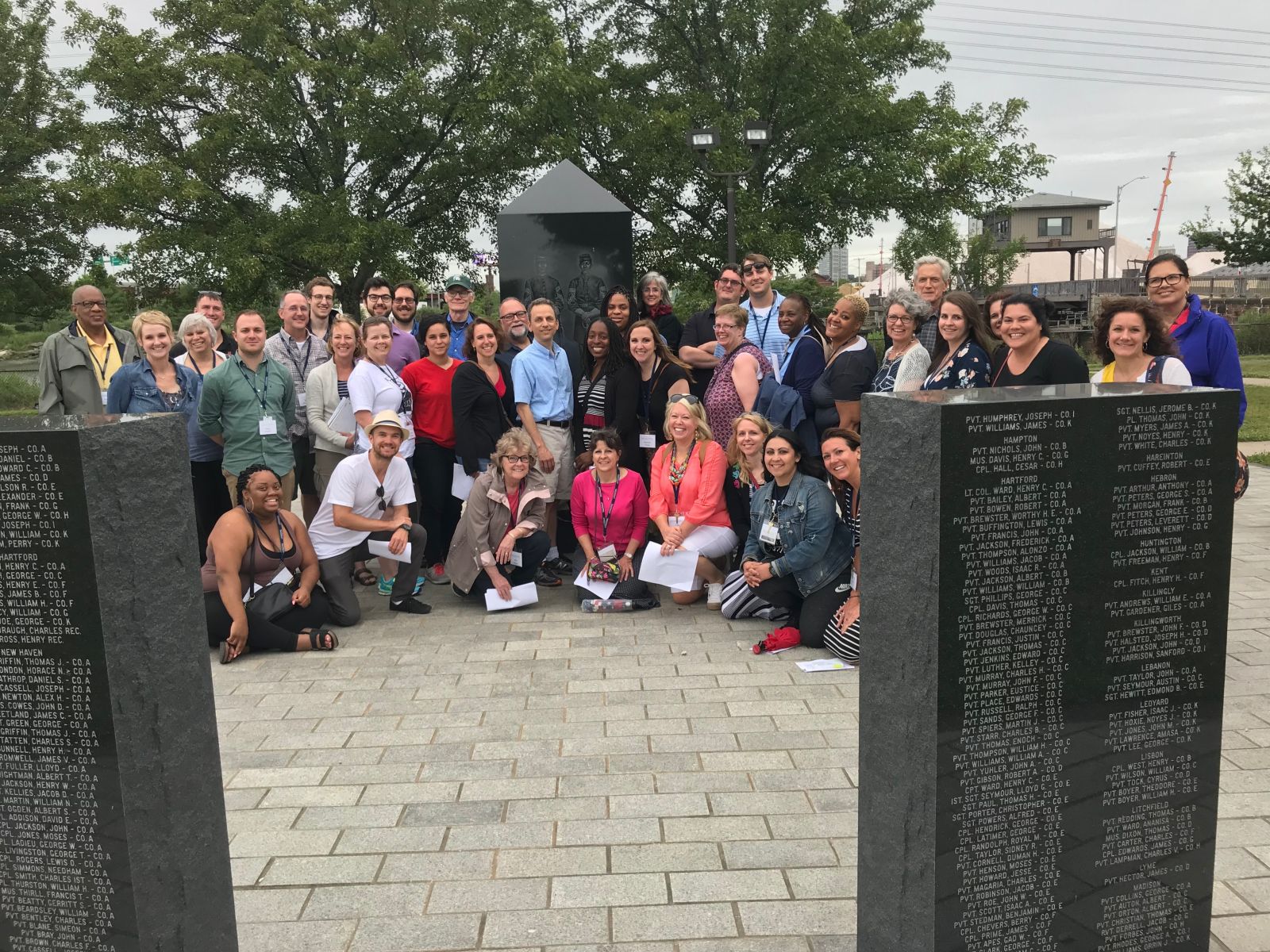Summer Programming at the Gilder Lehrman Center for the Study of Slavery, Resistance, and Abolition
Teachers’ Seminar: The Civil War and Modern American Memory
From June 10-24, 2018, the Gilder Lehrman Center hosted 25 college professors from 16 states for a weeklong seminar taught by GLC Director David W. Blight. Titled “The Civil War and Modern American Memory,” the seminar was jointly organized by the Council of Independent Colleges and the Gilder Lehrman Institute of American History. During the seminar, the professors studied primary source materials and secondary works about the ongoing resonance of the Civil War in U.S. historical consciousness. Discussion also focused on current protests and extreme violence regarding Confederate monuments and the enduring myth of the Lost Cause.
Yale Public History Institute
For the past six years, in collaboration with the National Museum of African American History and Culture (NMAAHC), the Gilder Lehrman Center has conducted a weeklong public history institute. Under the leadership of the American History Workshop, more than 150 museum professionals, public and academic historians, and graduate students have explored ways of engaging the American public in difficult historical issues. This year, with support from the NMAAHC, the GLC organized a Working Group to evaluate how this program can best serve the professional field. From June 20-22, 2018, a group of seasoned museum and public history professionals met to discuss a broad range of issues that cultural institutions are faced with, from responding to current political urgencies, to recruitment of people of color and young people as staff, to creating meaningful partnerships with community-based organizations. The rich discussions engaged in by the Working Group will help reshape the Yale Public History Institute to meet these contemporary conditions.
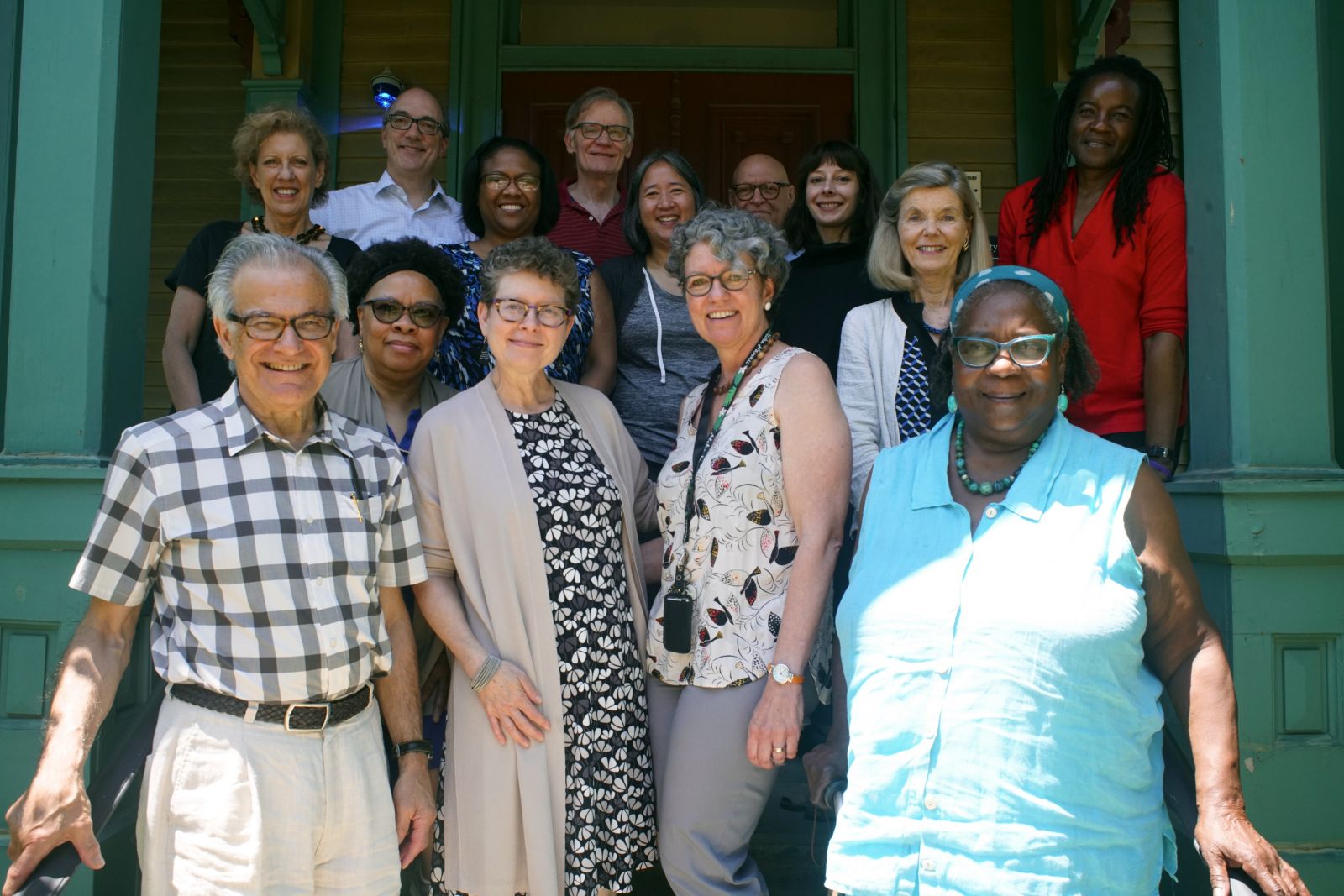
Student Workshop: Exploring Justice
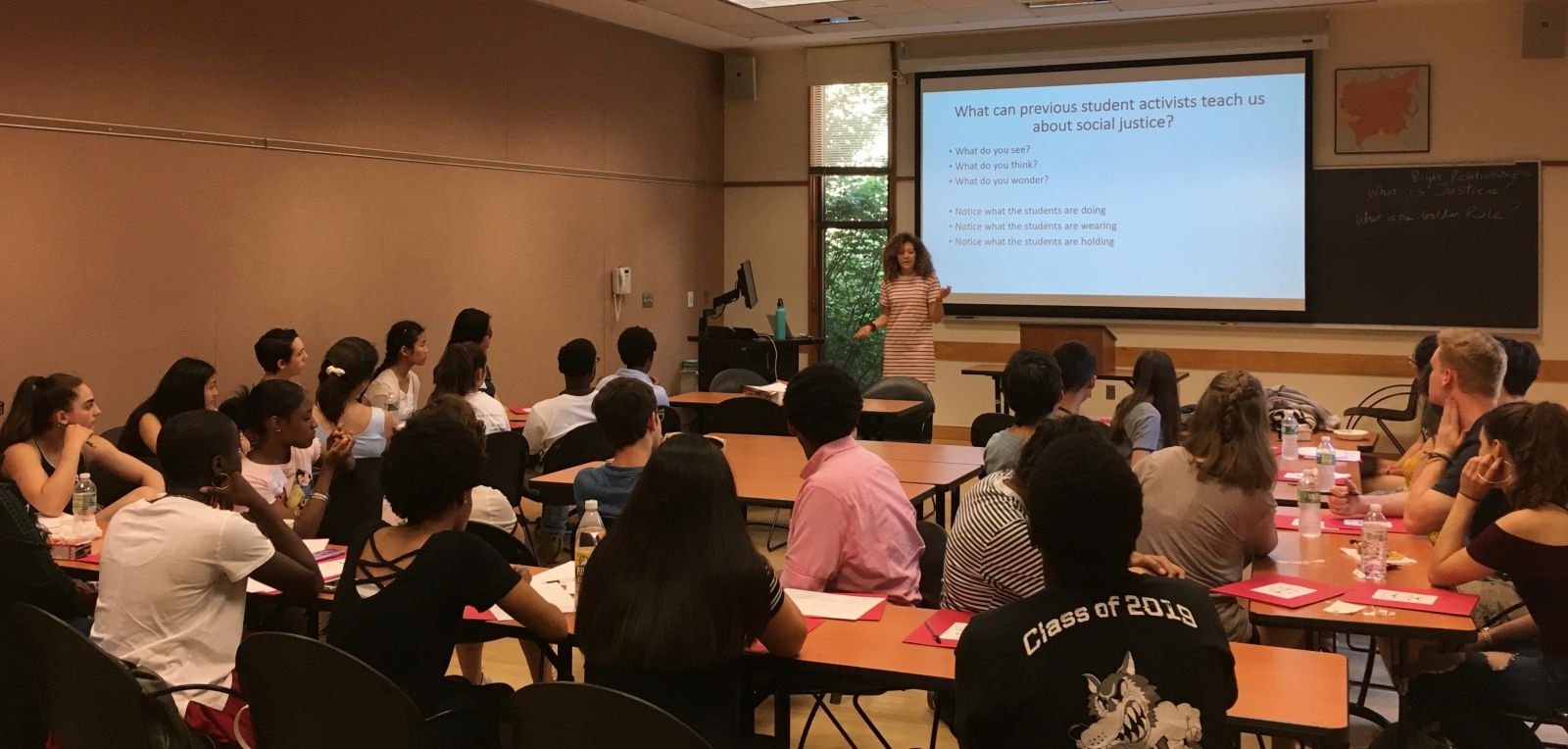
Summer Humanities at Yale
A LEAP program (Leadership, Education & Athletics in Partnership) led by the Gilder Lehrman Center for the Study of Slavery, Resistance, and Abolition and co-sponsored by the Yale Center for the Study of Race, Indigeneity, and Transnational Migration (RITM)
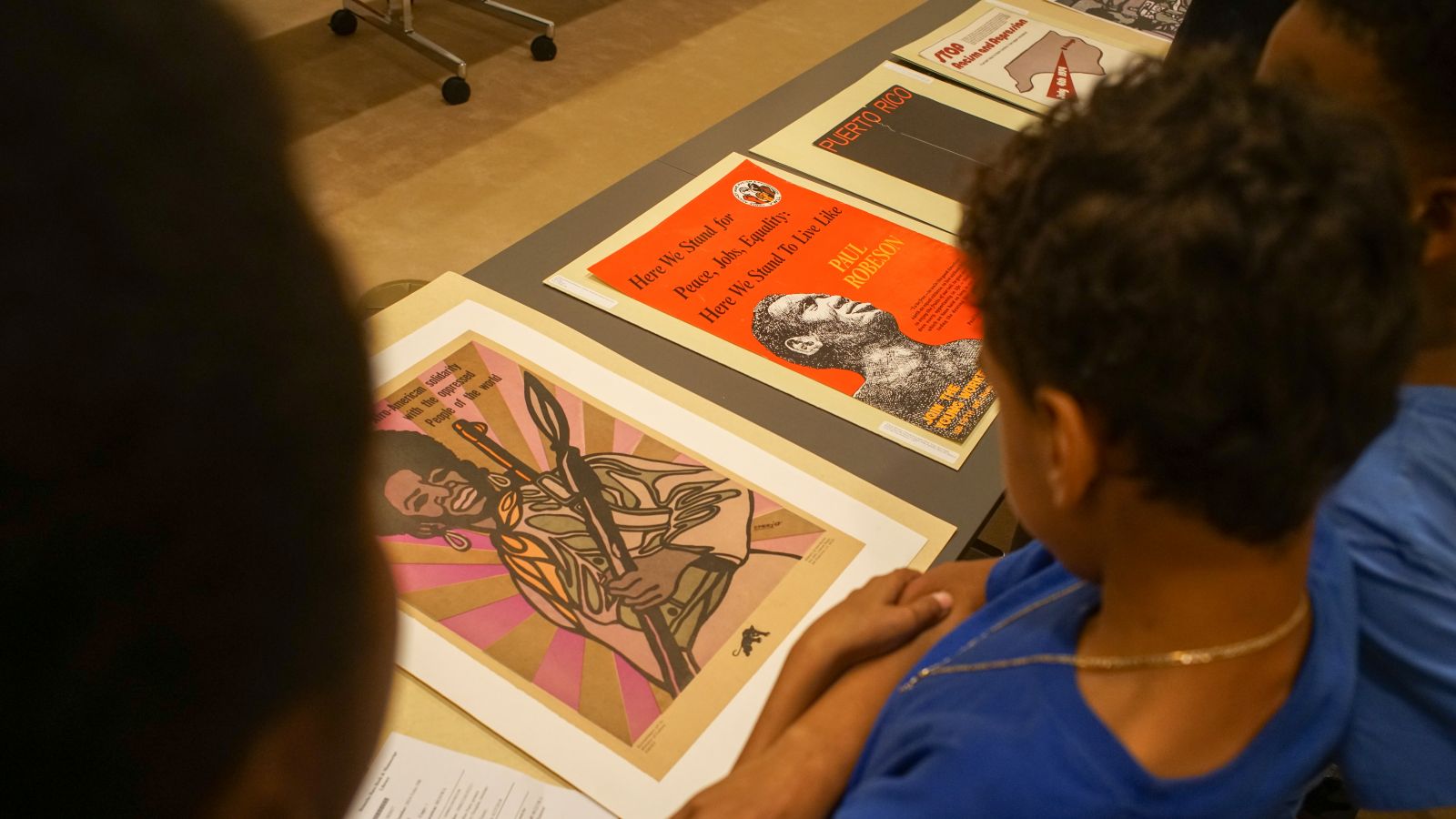
NEH Teachers Institute: The Long Civil Rights Movement
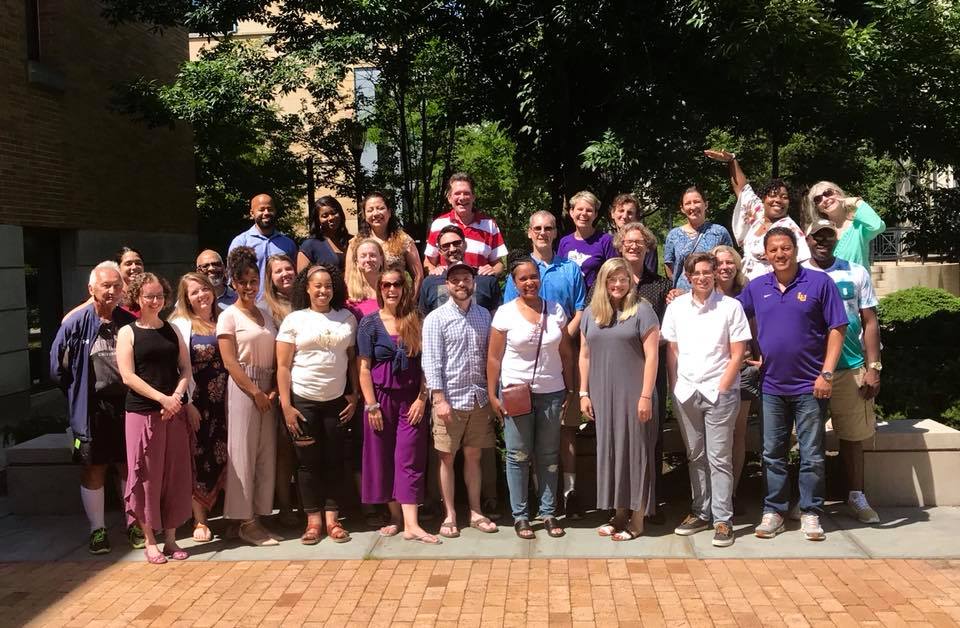
Teachers’ Seminar: The Life and Writings of Frederick Douglass
From June 24-30, 2018, the GLC hosted a weeklong seminar for K-12 teachers interested in learning more about Frederick Douglass as an activist, artist, and thinker. Organized by the Gilder Lehrman Institute of American History and taught by GLC Director David W. Blight, the seminar allowed 35 teachers in elementary, middle, and high schools to read broadly and think deeply about Douglass as a private person and a historical figure. Over the course of the week, the teachers developed and shared lesson plans designed to bring these ideas into the classroom.
